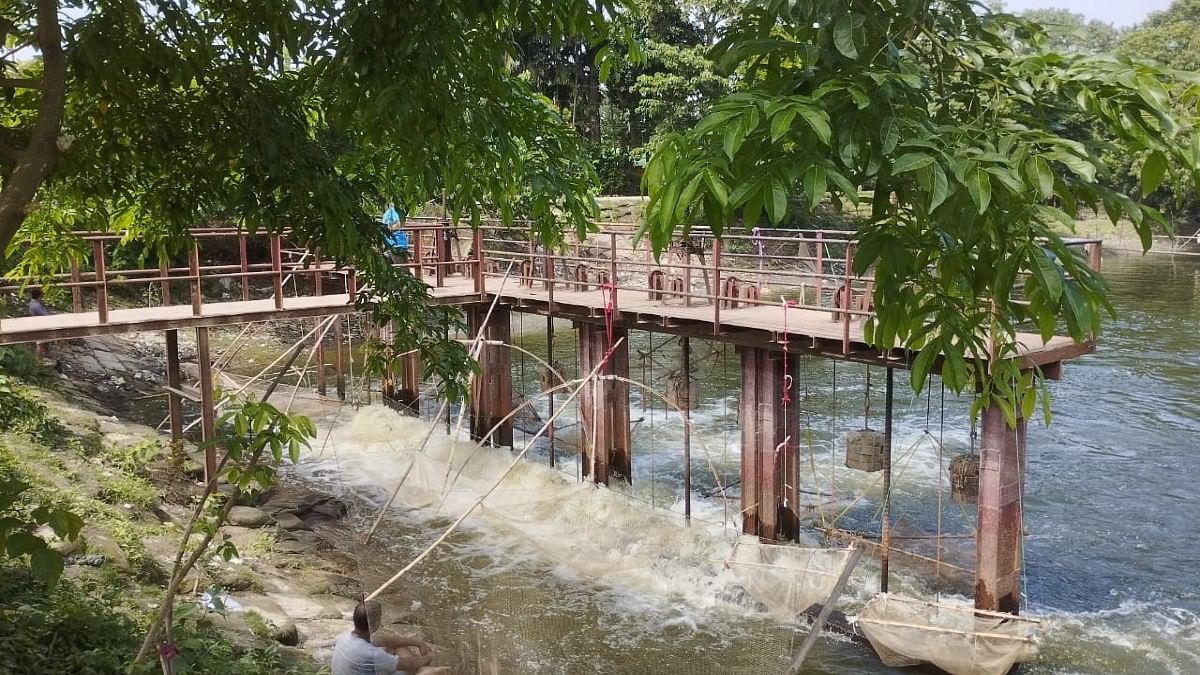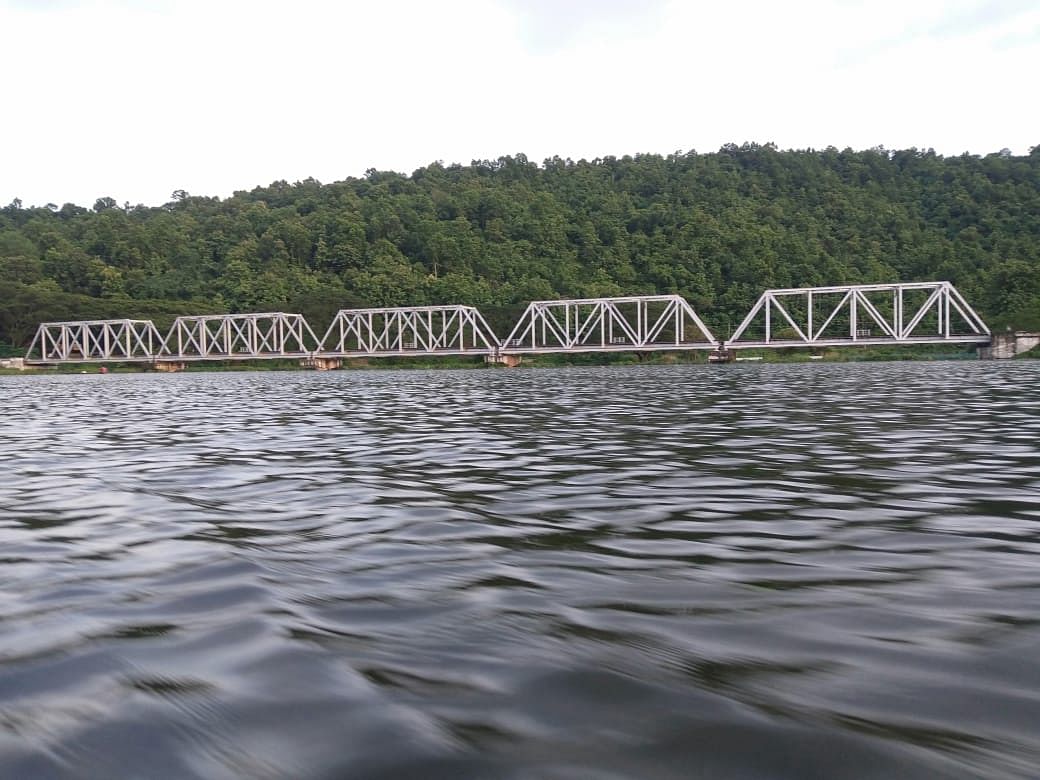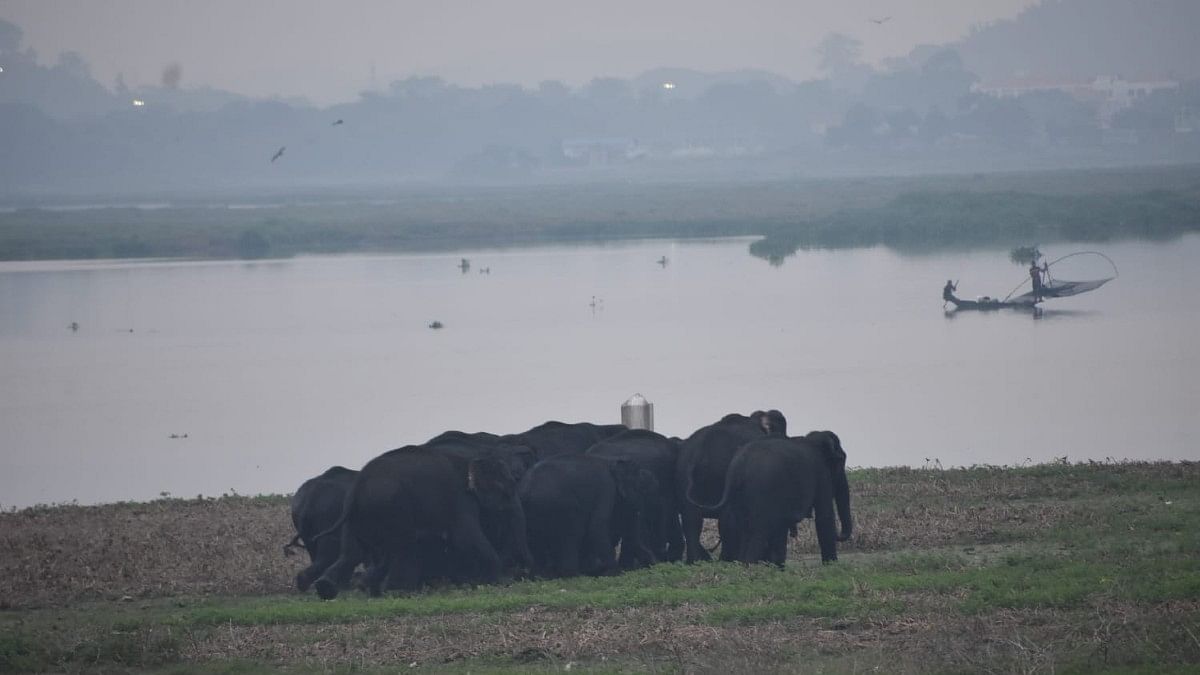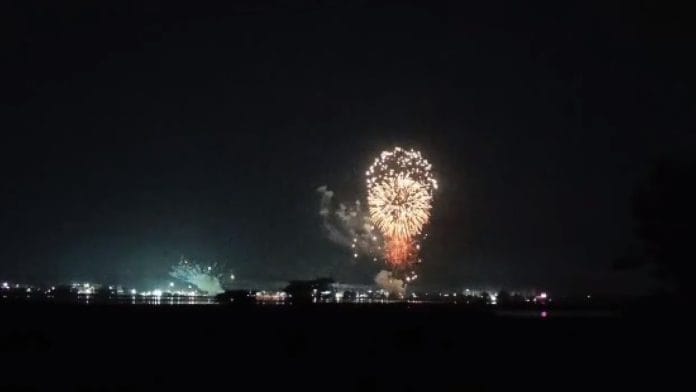Guwahati: A three-day water sports festival organised near the Deepor Beel wetlands and bird sanctuary in Assam earlier this week has angered local residents and conservationists, who had warned that it posed a potential threat to the avian and marine ecosystem at the Ramsar site.
What has particularly riled them is the artificial raising of the water levels of the Deepor Beel (lake), which they claim was done by the state forest department to facilitate the Rising Sun Water Festival. The move, they say, has hindered the migration of winter birds and the movement of elephants that descend from the hills to the beel to drink water.
The Rising Sun Water Festival — a collaborative effort between the Assam government and the Army — saw national level clubs compete in sailing and rowing events. It culminated Monday with a massive display of fireworks at an area demarcated for the event, perilously close to the Deepor Beel Wildlife Sanctuary.
Local residents said it is illegal to set off fireworks next to birds’ breeding and roosting areas. Pramod Kalita, an activist from Chakardeo village and secretary of the Deepor Beel Suraksha Manch, told ThePrint: “It is a wildlife crime to disturb birds at a sanctuary. The water level should have been in its natural state. Since the water sports festival cannot be organised inside the sanctuary, they held the water unnaturally by closing a sluice gate, thereby organising the event outside the sanctuary premises.”

The state forest authorities have denied the claims, saying it was a pre-agreed strategy to raise the water level, in order to improve the quality of water in the beel. ThePrint also reached Army PRO Lt Col Mahendra Rawat, who declined to comment.
Deepor Beel is the only wetland in Assam set to be designated as a site of importance under the Ramsar Convention — international treaty for the conservation of wetlands. Spanning around 900 hectares, it is home to 150 species of birds in and around the sanctuary including nine threatened species. The ecosystem harbours many species of migratory birds in winter, besides resident birds. A core area of 4.1 sq km is designated as the Deepor Beel Wildlife Sanctuary — maintained by the wildlife division of the forest department. The area beyond is maintained by the district administration and the Guwahati Metropolitan Development Authority.
Speaking to ThePrint, M.K. Yadava, principal chief conservator of forests (PCCF) and head of Forest Force, Assam, attributed the cause of the controversy to the water level being held up for an extra 15 days, and the water sports event being held around this time.
“The festival was just an antecedent of the fact that we held up water — as part of a strategy to improve its quality. This is the first time we have used the sluice gate to block the water. The gate was lying unused for many years. After a series of tests, we found the water quality has significantly improved. The Dissolved Oxygen (DO) level, which was 4/3 miligrams per litre (mg/L) has now come to 6/7 mg/L, a very good sign for everyone,” he added.
Also Read: Jewar airport has fuelled a fight for Dhanauri wetlands. UP now has to balance 3 priorities
Impact of raised water levels
Located 12 kilometres from Guwahati, the Deepor Beel is a perennial freshwater lake, the nation’s seventeenth wetland (recognised 1989) and a wildlife sanctuary. Some part of the beel receives water from the Basistha stream in the city through an offshoot of the Mora Bharalu river, and another part is connected to the Brahmaputra. A number of sluice gates are used to control the flow of the water. In the latest case, the Khanajan sluice gate in Kharbari area was used to hold the water and maintain a high level.
The survival of the region’s villagers, fisherfolk, and wildlife is intrinsically tied to the health of Deepor Beel and its surroundings.

An official of the state forest department told ThePrint that the Rising Sun Water Festival was held away from the Deepor Beel Wildlife Sanctuary premises — on private or patta land.
“It was not in the wildlife sanctuary premises. Also, we cannot give permission for an event held on patta land. It was overseen by the state cultural department, and we have no role in the matter. As of now, we are not doing an assessment of avian species, but we will have a count later when the birds start arriving in December,” said another forest official on condition of anonymity.
Local activist Kalita, quoted earlier, said the water sports activities did not affect the lake as much as the high water levels and arrangements made in connection with the festival have.
“Last year, at the same place where the event was held, we witnessed nearly 100 birds during the bird count in December. Even if it was held on private land, the noise of firecrackers, the sound of machine boats, helicopters hovering over the beel, dignitaries moving around in speed boats and other such activities has had its impact on the ecosystem in the wetlands,” said Kalita.
“There has been no problem because of rowing and sailing activities in the beel, but the other undertakings associated with the event have posed a threat,” he added.
Highlighting the problems caused by the high water levels, Kalita said it has also affected the flow of the Brahmaputra water into the beel, which is detrimental to the health of the wetland.
“Birds don’t stay in deep waters and because of the high water level, it has affected their roosting areas. Some birds eat grass and only when the water is released, the grass would grow. The migratory birds are almost about to land and the time is unfavourable because of the high water level. The elephants come down from the hills, but can hardly stay for 10-15 minutes because of the water level. For three days, foresters have saved elephants from train collisions in this section,” he added.

Kalita further said that villagers too have not been able to do cultivation or maintain livestock because of the rise in water level.
PCCF Yadava said that the forest department wanted to release the water in October, but there was no rain. “By the time we decided to release the water, towards the end of October, there was a request from the Army to hold a fest. The fest was being held on private land. And we facilitated conducting the event by maintaining the high water levels.”
He added: “The water quality of the beel was very bad. At least we have been able to achieve one milestone — not because of the sports festival, but because we planned to improve the quality.”
Govt wants to ‘simplify rules’ for such events
Adding to the crisis, Assam Environment and Forests Minister Chandra Mohan Patowary reportedly told the gathering at the festival Monday that the government will “simplify rules” to avoid environmental clearance for organising water sports and tourism related activities at Deepor Beel.
Echoing his thoughts, Assam Minister for Urban Affairs and Housing Ashok Singhal said the state government will contemplate on making sailing and boating “permanent features” at Deepor Beel. “We could clean the Deepor Beel and successfully hold this event. In days to come, we will continue to work towards keeping Deepor Beel clean and increasing tourism avenues in the wetland, including an autumn water festival. We will contemplate if sailing, boating and rowing activities can be made permanent in the beel. It will create a good atmosphere.”
Meanwhile, the forest department plans to release the water in a couple of days.
“We shall take care of this in future, because we do not want to disturb the wildlife and the birds. Next year onwards, if the water sports festival happens, we will shift it towards a convenient time like October. Our strategy would be to trap and release the water, at least two times, during the flood season,” said PCCF Yadava.
Kaushik Barua, a wildlife conservationist said, “An impact assessment needs to be carried out to figure out, to what extent, things stand to be affected due to the recent activities.”
(Edited by Gitanjali Das)
Also Read: In Assam, trains prey on elephants. But Haati Mitras, AI have been defeating them for 4 yrs






